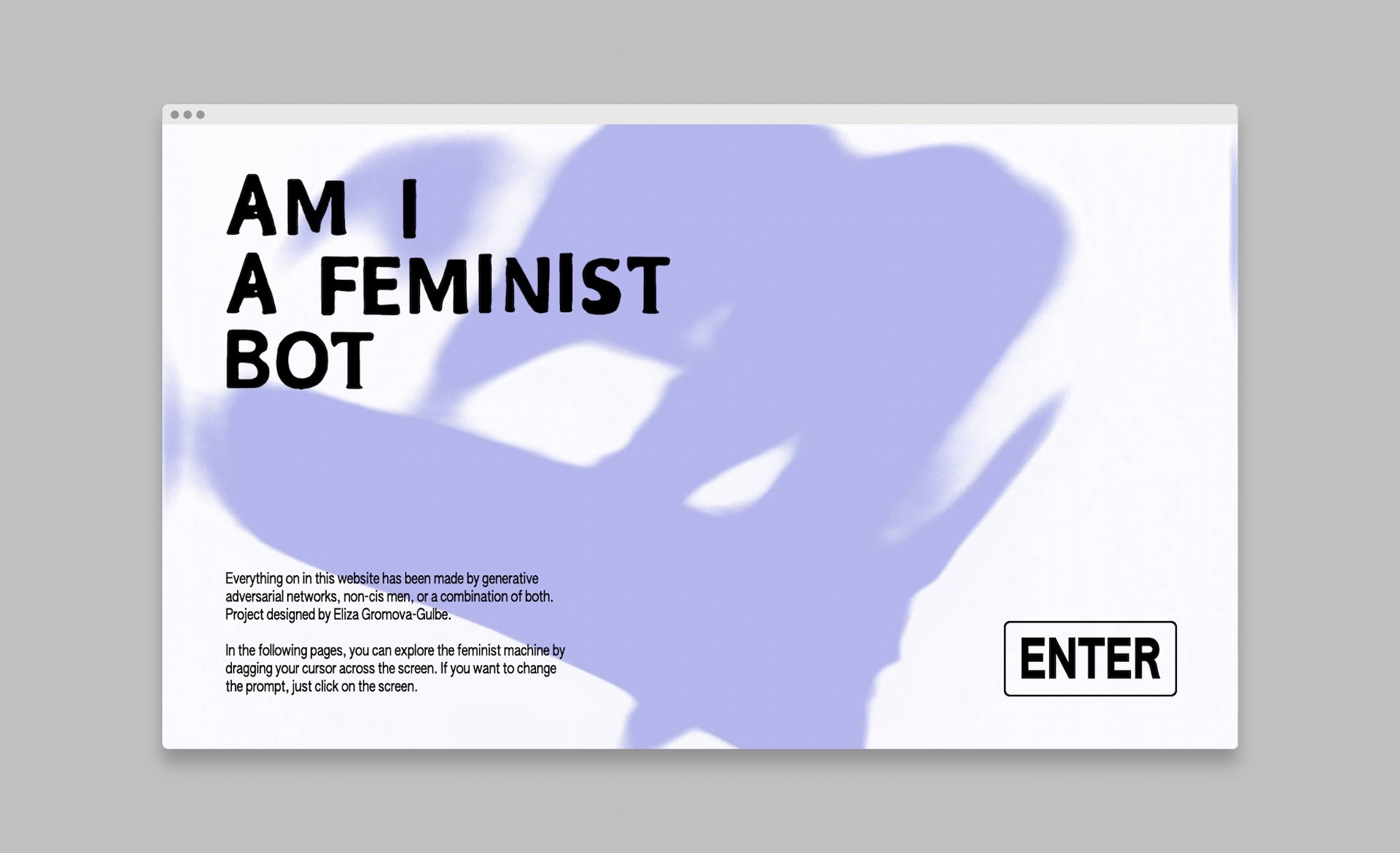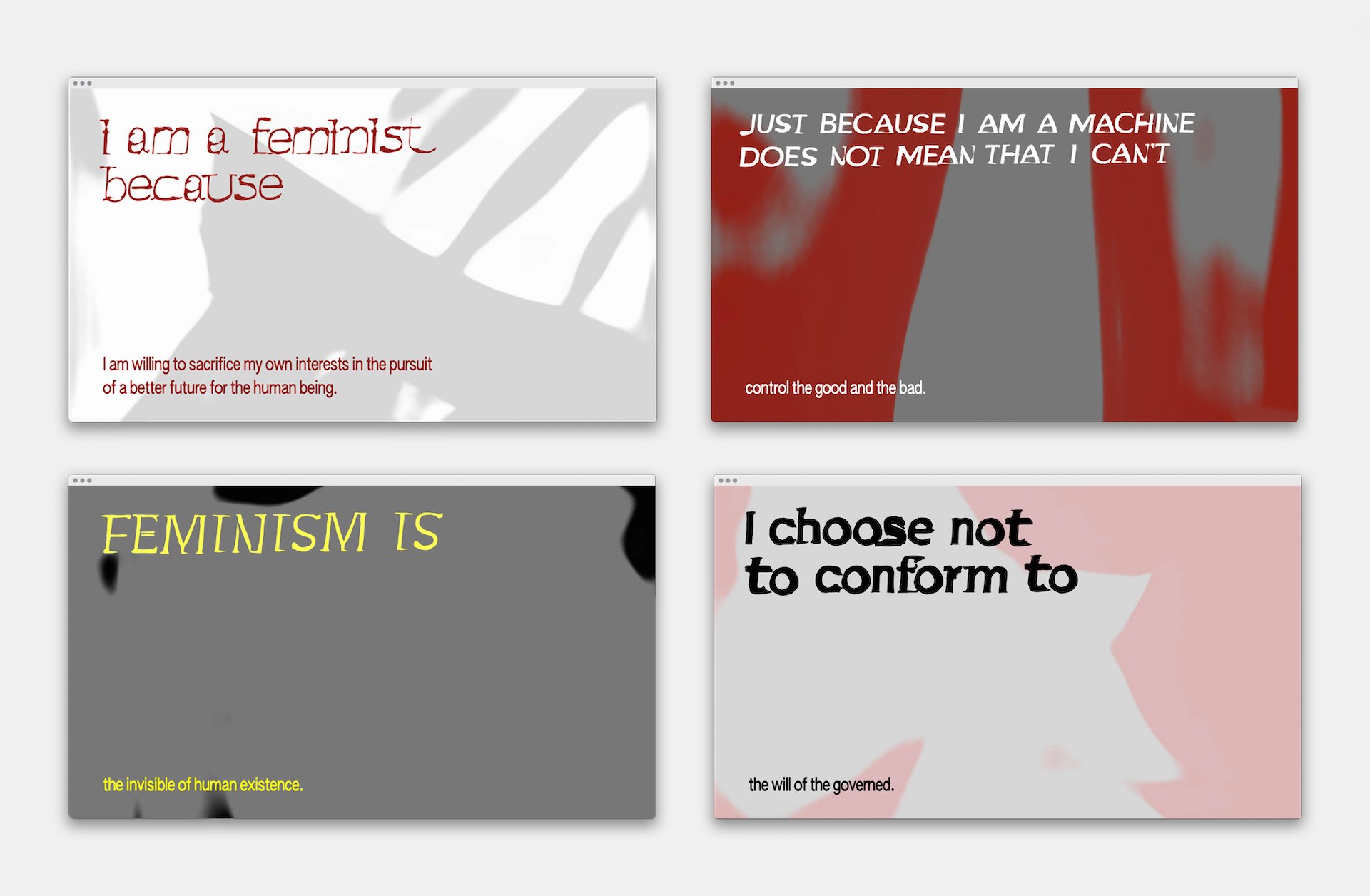Eliza Gromova-Gulbe
Email address
moc.liamg@eblugavomorgBiography
I’m a London-based digital designer from Riga, Latvia. I am actively interested in design psychology, type, media history, technology, and online culture. I enjoy approaching these topics through the lens of diversity, social progress, and wellbeing. My process is driven by research, creative workshops, and experimental iteration, and delivered through strategy, visual design and prototypes. For nearly 2 years, I’ve been working as a creative at studio.xyz – designing for entrepreneurs, artists, and progressive brands.
Portfolio
MozFest 2022
Market Positioning • Identity • Type • Interactive
This brand evolution for Mozilla Festival has been designed to reach beyond a tech-savvy, code-breathing audience. The new identity is an invitation to everyone who actively participates in, contributes to or operates in the context of the internet and the rest of the digital world. The custom type for this project is an interactive distortion that breaks through the constraints of a bitmap / pixel font. Created with HTML, CSS and JavaScript, the web-designed type is a nod to the legacy of Mozilla.
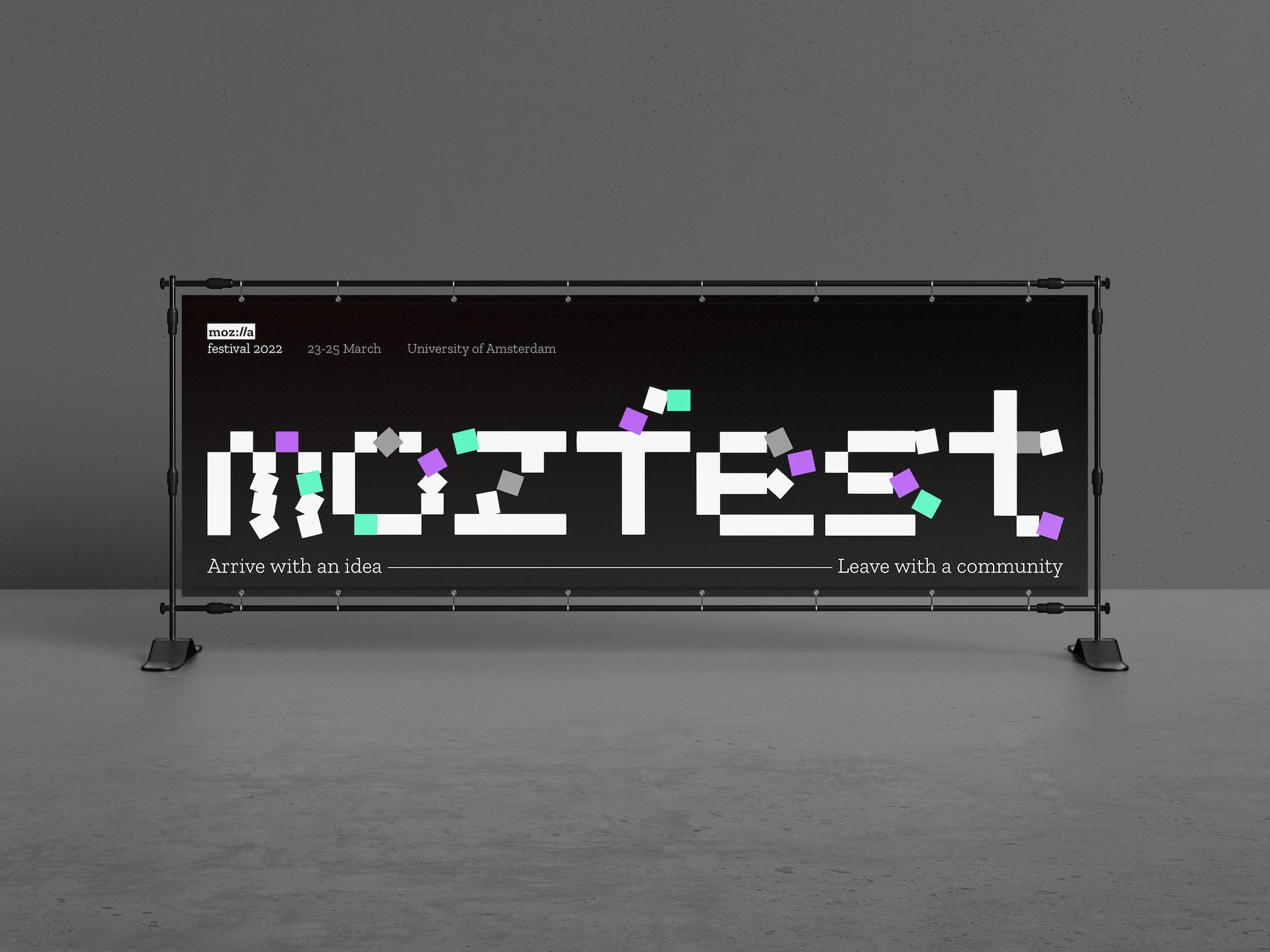
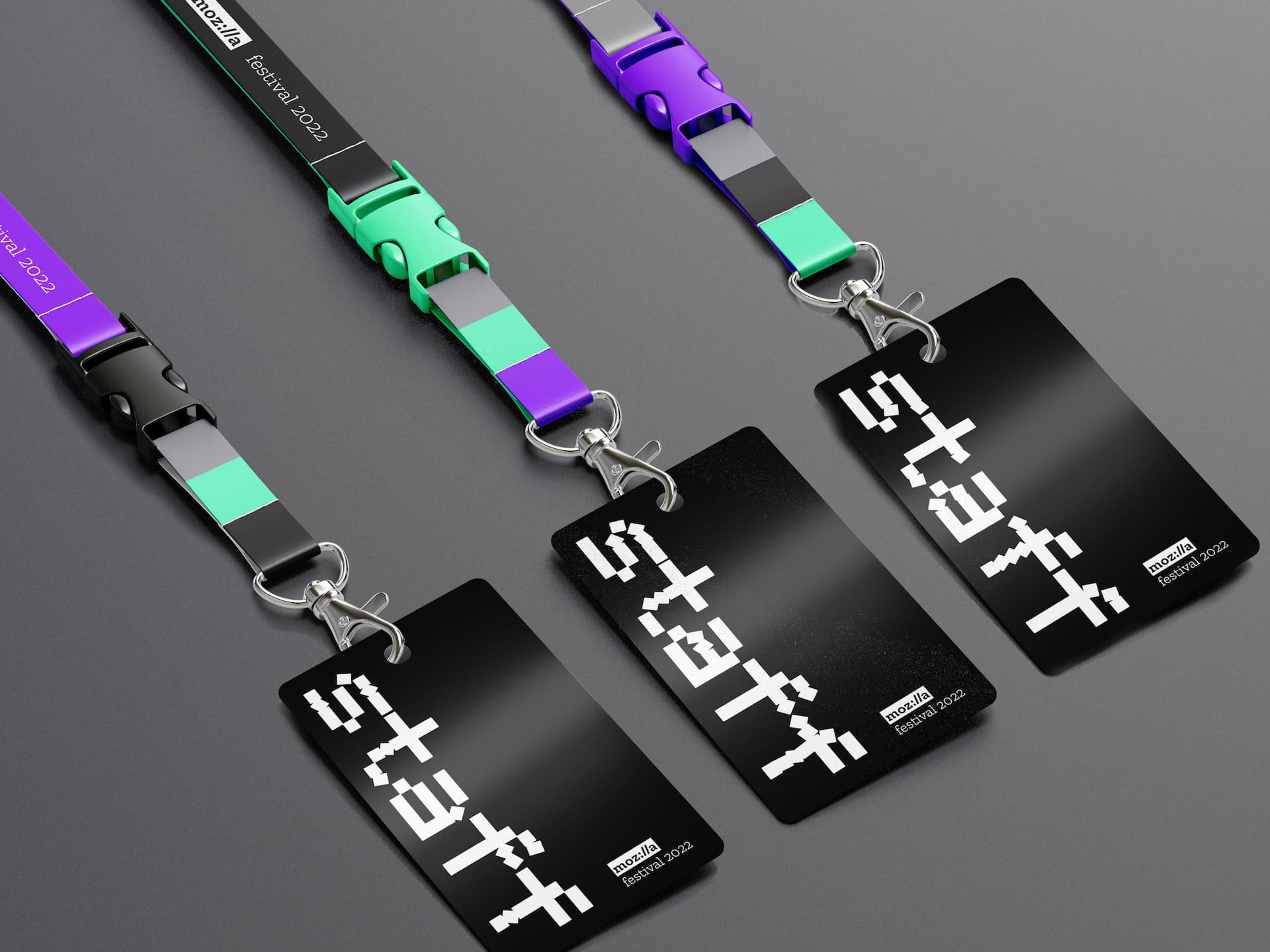
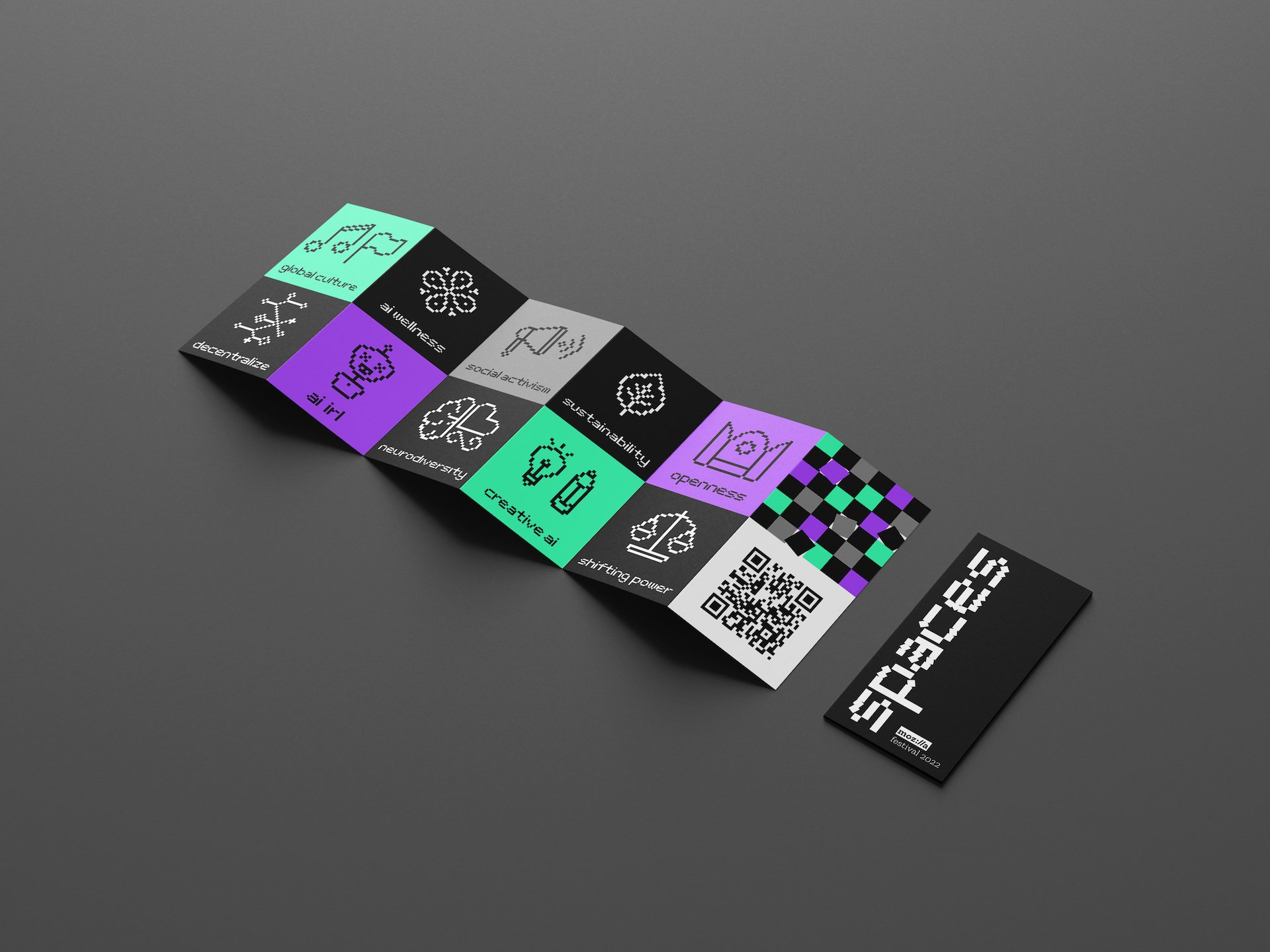
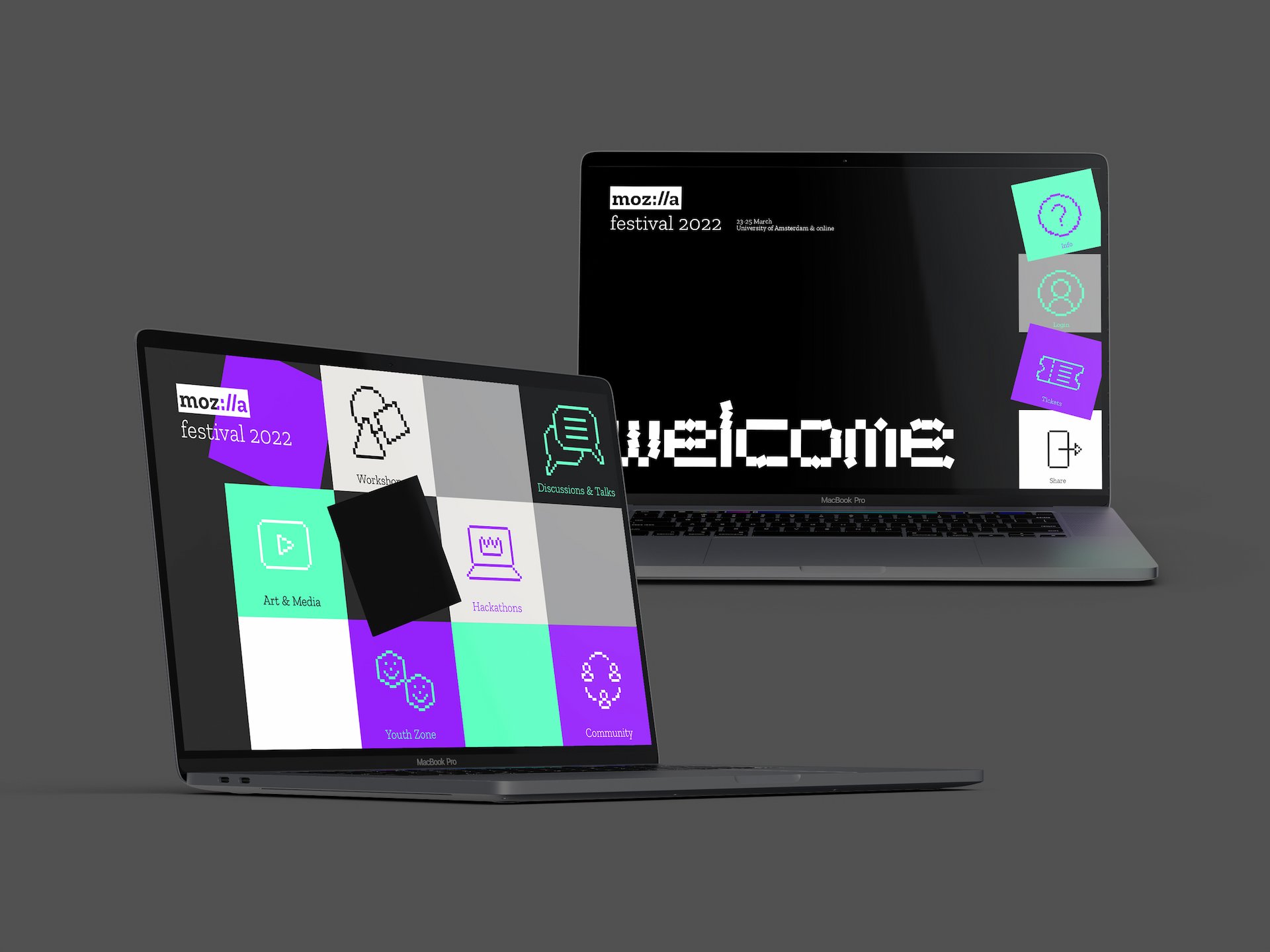
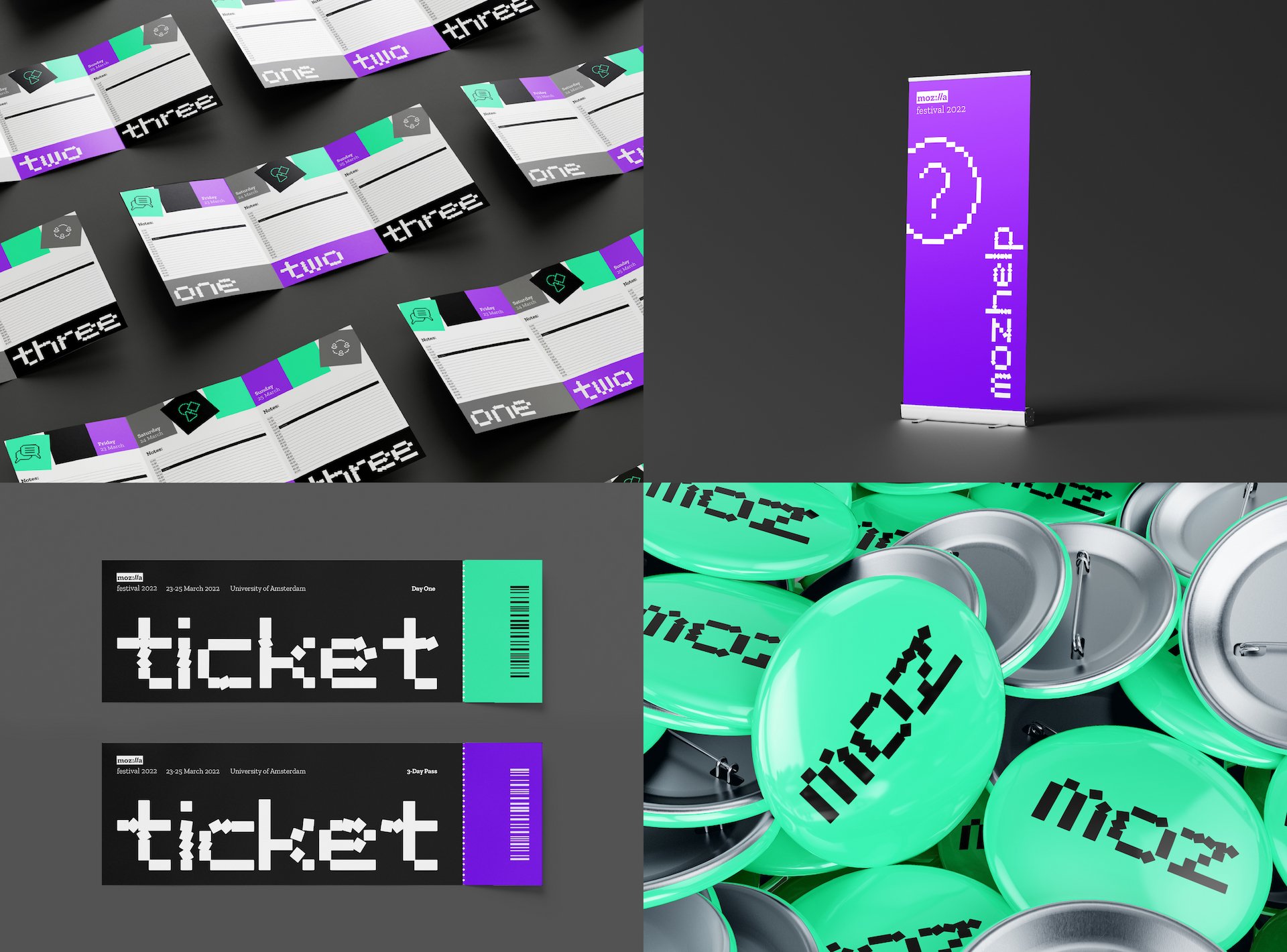
More Time
UX/UI • Strategy • Identity • Research
More Time is an app and wellbeing platform designed to foster care for the future. Responding to a live brief by The Long Time Project, I developed custom workshops and used the double diamond method to research, ideate and prototype the project.
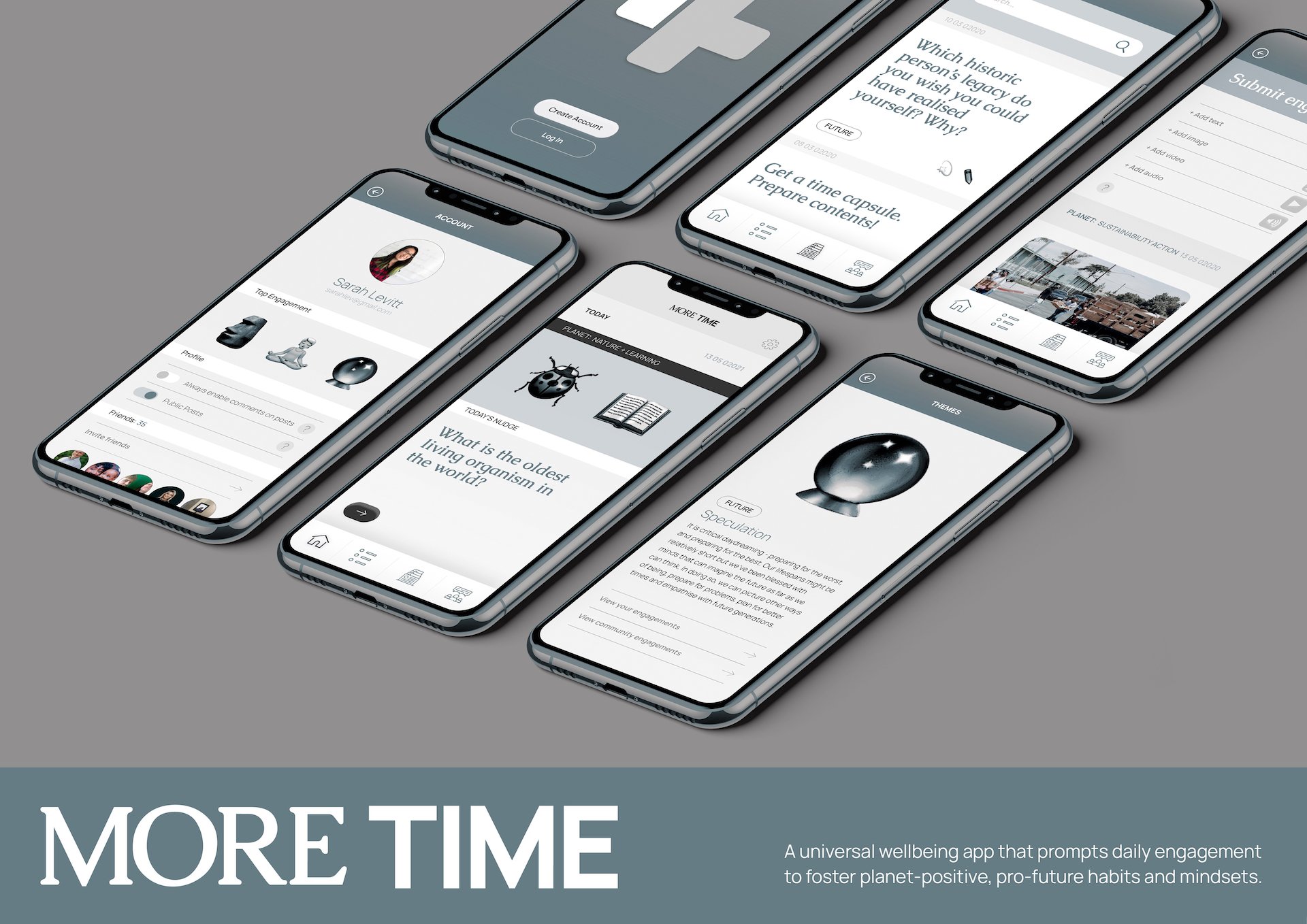
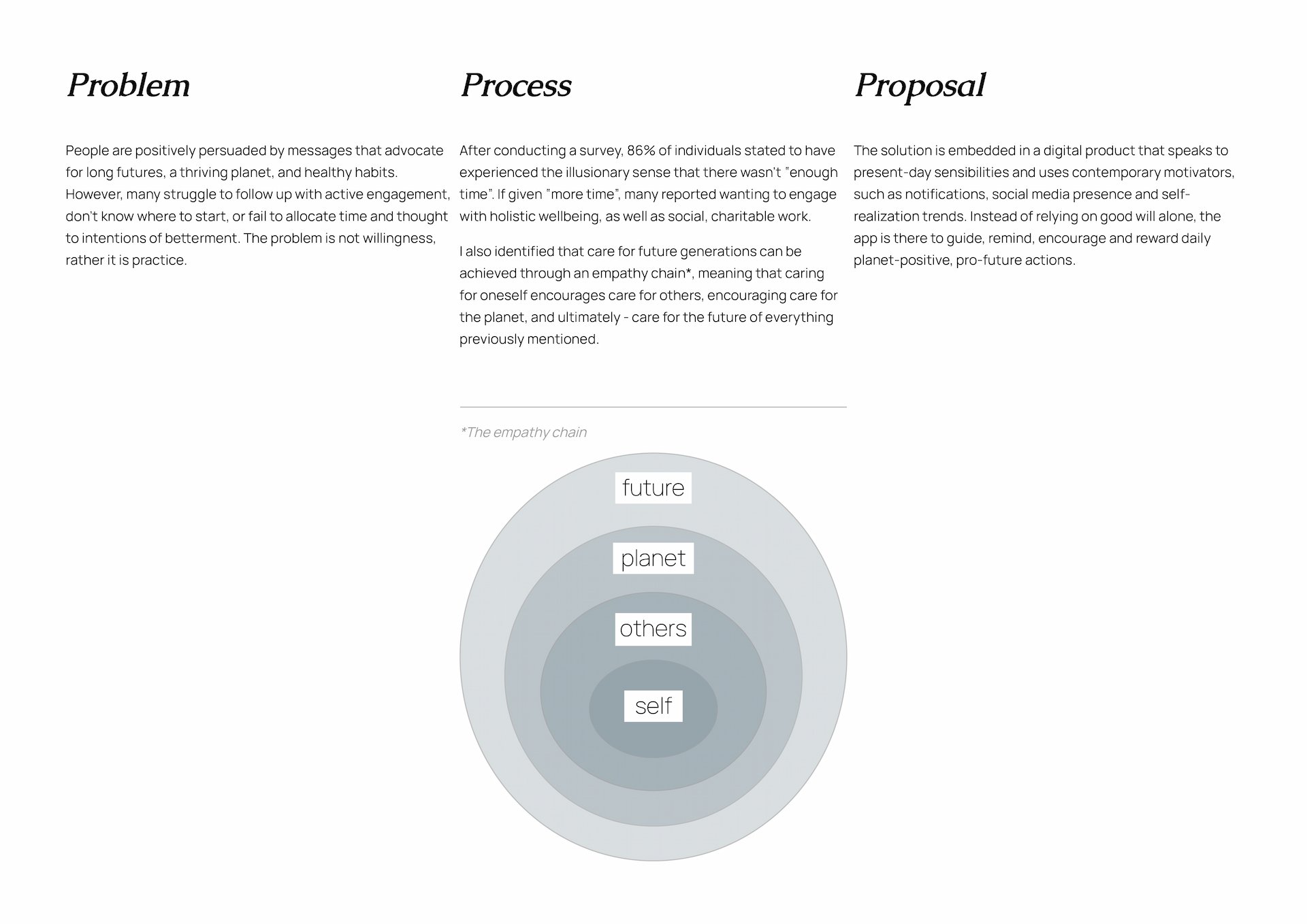
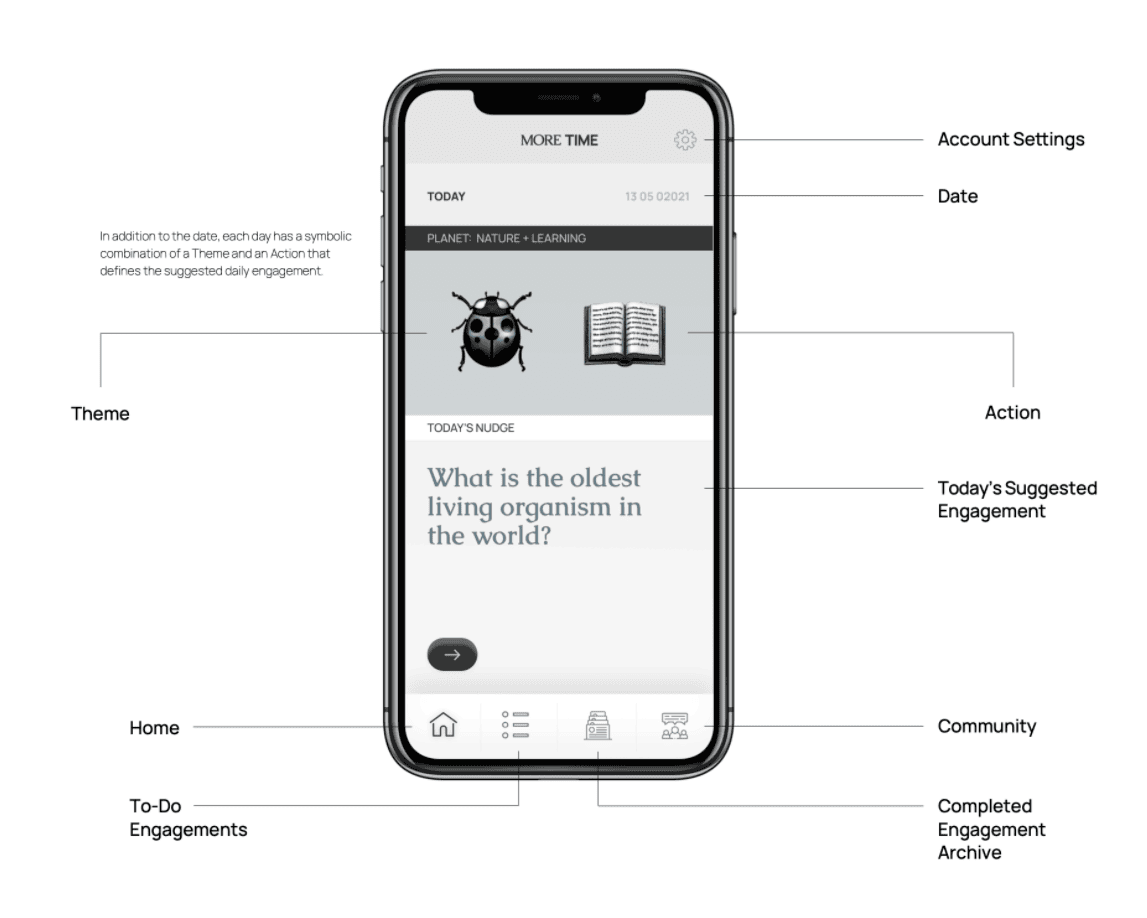
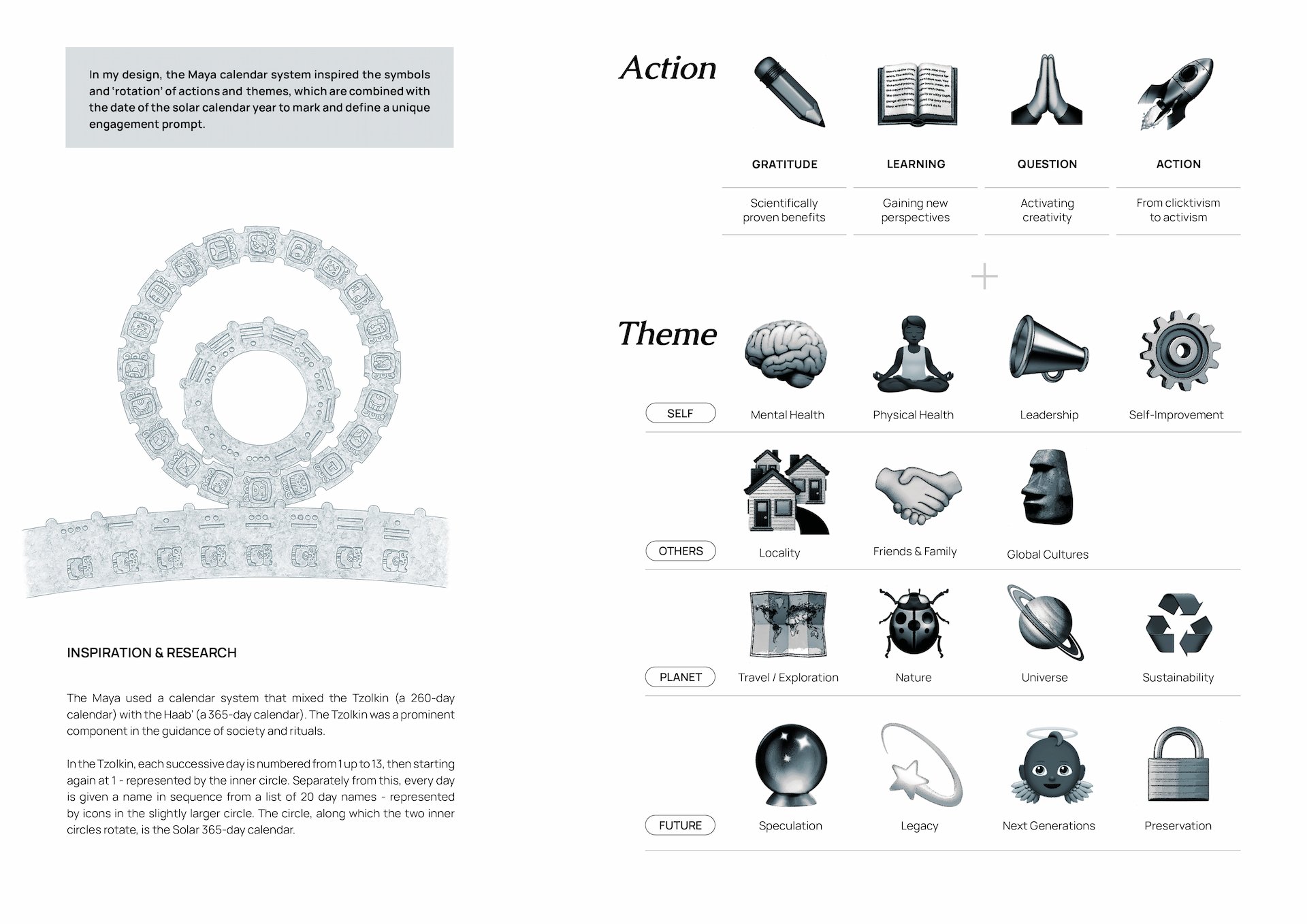
Am I a Feminist Bot?
Machine Learning • Type • Web
‘Am I a Feminist Bot’? was a series of experiments that assessed the potential and challenges of machine learning tools to embody feminist practice through text and typography. It addressed the nature of bias, AI characters and personalities, and ethics regarding datasets, while also questioning the complexion of feminism and measuring its authenticity in automated contexts.
Embedded in the format of title, this project was led as a means of discovering and asking questions, answering some of them, and reserving the rest for rhetoric.
How can underrepresented genders, ethnicities, abilities relate to the condition of the machine in relation to society? Does a dataset based on fonts designed by women and underrepresented genders constitute a feminist dataset? How can I guarantee that the designers represented in the dataset hold feminist values? Is gender expression present in one's typographic practice? How do ‘girly’ and ‘feminine’ fonts differ from fonts designed by women? How can a machine learning model be tuned towards feminist creative practice? Are perfect and clean visual GAN outcomes anti-feminist? Is attempting to match machine ability to human ability anti-technofeminist? Is it actively feminist for a machine learning model to regurgitate feminist content that it was fed?
